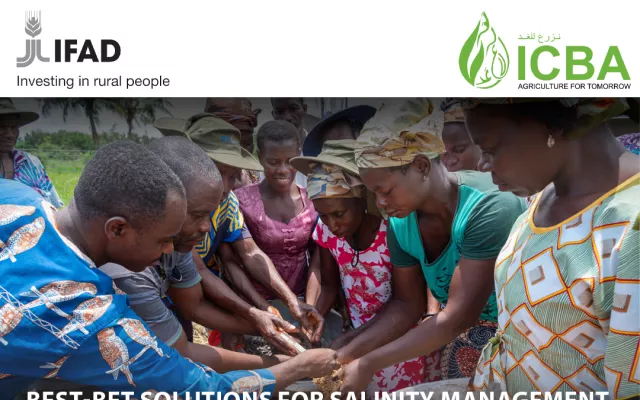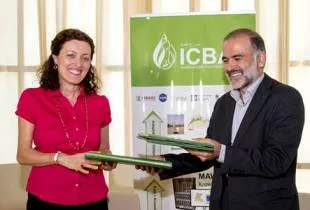ICBA, Tehran University sign agreement to boost research cooperation
14 October 2015
The International Center for Biosaline Agriculture (ICBA) continues to expand its cooperation with research institutions across the Middle East and beyond to ensure sustainable agricultural production in marginal environments.
As part of its continued efforts to build and enhance scientific partnerships in the region, ICBA signed a five-year Memorandum of Understanding (MoU) with the University of Tehran, Iran, on 7 October 2015 to collaborate on contributing to global knowledge on salinity, soils, and agriculture.
The agreement will help to carry out a wide range of joint activities, and aims to leverage resources and facilities towards developing data, applications of remote sensing in agriculture, and proposing policy options for sustainable agriculture in marginal environments.
“International collaboration is very important for the implementation of projects and for the exchange of scientific expertise because it adds value for both sides. In Iran, we have specific climatic conditions, soil type, and ecological footprint and we believe that our research findings could be beneficial for ICBA and vice versa,” said Dr. Sayed Kazem Alavipanah, a remote sensing specialist at the Department of Physical Geography, the University of Tehran.
ICBA and Tehran University will jointly develop proposals in areas of mutual interest and will endeavor to secure support for collaborative research-for-development initiatives. Both institutions agreed on the regular exchange of information and research materials.
For their part, ICBA researchers are optimistic about replicating their successful research findings in Iran, Turkey, Iraq, and Syria, as well as other countries. For example, the MAWRED project is already helping to increase knowledge about climate change effects in the region and to formulate adaptation strategies.
“This cooperation with the Faculty of Geography at the University of Tehran focuses on mapping and the use of remote-sensing images. We can together improve the interpretation and analysis of methods to identify marginal areas and provide this information to decision-makers and implementers to identify the areas in need of solutions,” said Dr. Richard Soppe, a marginal water management specialist at ICBA.










